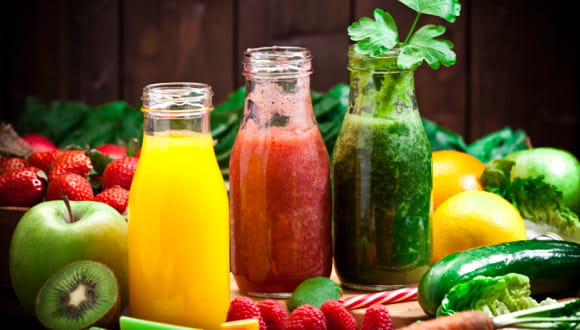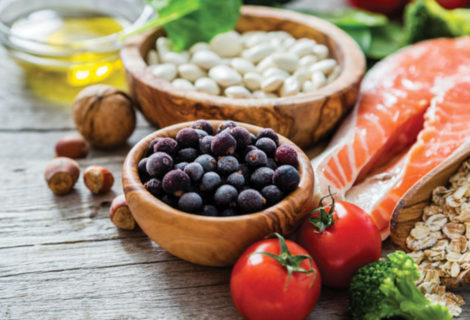Which fruit juices are good for you?
Welcome to the topic Which fruit juices are good for you?
Eating more fruit is a wonderful approach to enhance general health and lower the risk of diseases. These are abundant in fiber and a good source of vital vitamins and minerals. Fruits also include a variety of antioxidants that are beneficial to one’s health, such as flavonoids. So, what’s better than eating fruits? Making fresh juices out of them of course!
With over 2,000 fruit types to choose from, you may be puzzled as to which ones to select. Various varieties of fruit each have their own set of benefits and nutrients to provide. The trick is to consume fruits of varied colors since each color has a unique combination of beneficial elements. In this article, we will answer the inevitable question; which fruit juices are good for you? Read on and find out which fruit juice varieties are best for your health
Blueberries
In addition to their antioxidant and anti-inflammatory effects, blueberry smoothies are also high in fiber. The antioxidant anthocyanin, found in high concentrations in blueberries, is the plant pigment and flavonoid that gives the fruit its distinctive blue-purple tinge—this chemical aids in the battle against cell-damaging free radicals, which can result in illness.
Anthocyanin-rich diets have been linked to a variety of health advantages, including a decreased risk of type 2 diabetes, heart disease, overweight/obesity, high blood pressure, some forms of cancer, and cognitive decline, among other things. For example, research with over 200,000 participants discovered that every 17 grams of anthocyanin-rich berries taken per day resulted in a 5% reduction in the chance of developing type 2 diabetes in the individuals.

Which fruit juices are good for you
Avocado
While Avocado juice may not be as popular as other juice varieties, in contrast to the majority of other fruits, it is high in healthful fats and low in natural sugars. They are mostly composed of oleic acid, a monounsaturated lipid that has been linked to improved heart health. They also include high levels of potassium, fiber, vitamin B6, folate, vitamins E and K, as well as two carotenoids known as lutein and zeaxanthin, which are beneficial to eye health when consumed in large quantities.
In fact, a high-quality 2020 study discovered that participants who consumed one avocado each day for five weeks saw a substantial reduction in cholesterol levels and an increase in blood lutein levels. Avocados have more calories per gram of weight than most other fruits, according to the USDA. Studies, on the other hand, have linked them to improved weight management. Researchers have hypothesized that this is due to the high fat and fiber content of these foods, which helps people feel full longer.
Pineapple
A natural dietary source of an enzyme known as bromelain, pineapple is the only fruit that has it. Pineapple juice is one of the most widely consumed tropical drinks in the world. One cup (165 grams) of pineapple contains 88 percent of the Daily Value (DV) for vitamin C and 73 percent of the Daily Value (DV) for manganese, as per the USDA. Manganese aids in the control of metabolism and blood sugar levels, as well as acting as an antioxidant.
The polyphenolic compounds found in pineapple have antioxidant and anti-inflammatory effects, as well as being delicious. In addition, pineapple includes an enzyme, which is widely used to tenderize meats in the culinary arts world. Anecdotal evidence suggests that this enzyme may also aid in digestion; however, there has been little investigation into it.
Watermelon
Watermelon juice is a nutrient-dense summer drink. It’s high in antioxidants, including vitamins A and C, beta carotene, and lycopene. It’s also high in potassium and magnesium. Watermelon, in particular, has a good source of lycopene, a pigment that gives watermelon its pink-red color. A high-lycopene diet has been related to decreased levels of oxidative stress and inflammation. The vitamin may also reduce the risk of cardiovascular disease, cancer, and type 2 diabetes.
Surprisingly, lycopene and beta carotene may also give minor skin protection against ultraviolet (UV) radiation, lower the incidence of sunburn, and aid in the healing of sunburns. Finally, it has a high water content that is unrivaled. A single wedge (434 g) contains 13.4 oz (395 mL) of water. It can help hydrate and restore electrolytes after an exercise or on a hot summer day because it is high in both water and potassium.
Kiwi
Kiwi, often known as the Chinese gooseberry, yields juice that is extremely beneficial to your health. It is a great source of potassium, fiber, folate, and vitamin E, as well as a good source of vitamin C. Carotenoids, such as lutein, zeaxanthin, and beta carotene, which are beneficial to eye health and grow more prominent as fruits ripen, are also found in plenty in kiwi as well and are really good for you.
Furthermore, it has been used in traditional Chinese medicine to promote gut health and digestion for hundreds of years to improve digestive health. These advantages are attributed to the presence of soluble and insoluble fiber, polyphenols, and digestive enzymes such as actinidin present in this fruit. The consumption of two kiwis daily for three days increased stool frequency and softened stool, indicating that it may be beneficial in the treatment of moderate constipation.
Conclusion
Many healthy and delicious fruit juices can help you stay healthy. While this list contains five of the most nutritious fruit drinks which are good for you, there are many more to select from. Enjoy a mix of colored fruits on a regular basis to get the most benefits. Fruit provides your body with essential vitamins, antioxidants, and nutritional fiber. This has the potential to improve your heart health, digestion, weight control, and skin health.
Fresh fruits juice is generally considered to be beneficial for most individuals. While it is true that excessive sugar consumption can be unhealthy, this is not true for entire fruits. As opposed to that, they are “genuine” foods that are high in nutrients and satisfyingly full in their own terms. Whenever possible, consume fruit which are good for you and if you have the ability to handle it and are not following a low-carb or ketogenic eating plan.
Have any questions regarding the topic Which fruit juices are good for you? Feel Free to comment below.
Also Read: Do we really Need to drink so much Water?






